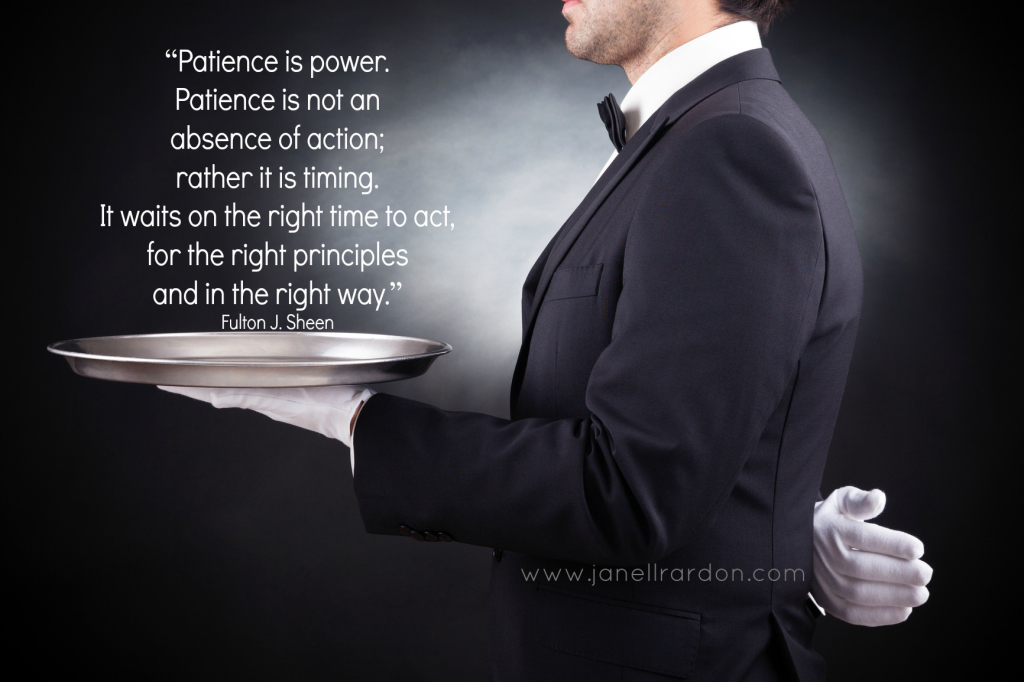Waiting in the Wings
If you were watching the World Cup on Sunday, you saw what the soccer world calls a wondergoal. In the 113th minute, late substitute Mario Götze receives a cross from Andre Schürrle and scores! The fact that both players were substitutes just proves the point that preparation + timing = opportunity. When I read how both ended up playing, I marveled:
“Götze, 23, had been replaced in the starting lineup after a disappointing start to the tournament, yet he rescued this match from the scourge of a penalty-kick shootout after entering in the 88th minute for forward Miroslav Klose, the all-time top scorer in World Cup history.Götze’s coach, Joachim Low, said he told Götze along the sideline to go out there and show everybody he’s better than Lionel Messi. But that was not exactly in the substitute’s mind when he scored the winner.
‘You just shoot that goal and you don’t really know what’s happening,’ Götze told reporters.
Schürrle may have only played in this match because starter Sami Khedira was injured in warmups, and then Khedira’s replacement, Christoph Kramer, was replaced in the 31st minute with a head injury.”
Both Götze and Schürrle were waiting in the wings.
Anyone involved in sports or dance/theatre, acting, etc. knows the power of those four words. Someone who is waiting in the wings has spent hours and hours preparing for their moment to put into practice everything learned “in the waiting room.”
Waiting is an Action Word
I’ve always been taught that waiting is an action word. So many teachers have used the example of a great waiter. He or she possesses many great qualities:
- They are attentive.
- They possess the gift of hospitality.
- They are pleasant.
- They listen and get the order right.
- They serve above and beyond the norm.
- They put everyone at ease.
- They perform their job with excellence.
David was an “Active Waiter.”
As a young shepherd boy, David spent a great deal of waiting. His waiting room took the form of a pasture. While his brothers had been serving under Saul (and obviously learning some of Saul’s bad habits), David had been doing one thing—becoming intimately acquainted with God. Killing bears. Killing lions. Saving sheep. Singing melodies. Playing his harp. Writing worship songs. Learning to listen to God’s still, small voice. David had been set apart, in a seemingly menial task, according to his eldest brother (1 Samuel 17:28) to grow spiritually.
While serving the sheep, God transformed a mundane, obscure pasture into David’s school of the Spirit.
But one day, David, a young man waiting in the wings like Götze waiting on the sidelines of the World Cup, it was David’s time to shine. David’s time to put into practice all the years of training in the pasture.
The story unfolds in 1 Samuel 17, especially verses 12-15.
David, in obedience to his father Jesse, ran fifteen miles from Bethlehem to the Valley of Elah, to deliver food rations to his brothers, who were serving in King Saul’s army. When David arrived on the scene, the Israelites were humming with horrid tales of a giant named Goliath, who had been taunting them, morning and night, for forty days. Flaunting himself before the army of Israel, Goliath obviously was a tool of evil—his bravado and pounding, pulsating voice resounding deep into the souls of the Israelites, provoking great fear and panic.
Imagine being an Israelite, listening to this intimidating, haughty, thunderous, frightening voice; causing you to intake of its nauseating diet for a steady forty days and forty nights.
- Enough to make you go mad? I think so.
- Enough to make you run and hide? Definitely.
Why, then, we must ask, didn’t David respond in panic or fear? Why didn’t he run away like all the other Israelites? Why, instead, did he run towards the frontline to fight? I can only surmise that David’s response is due to one thing.
David ran towards the giant because he was full of God— saturated by the Spirit. He ran towards the challenge—magnifying God, not the giant. 1 Samuel 17:48 says, “As the Philistine moved closer to attack him, David ran quickly toward the battle line to meet him.” Did you catch the adverb, quickly? He ran quickly. He ran quickly toward the giant.
How Can We Become “Active Waiters?”
Reading about David makes me want to become an active waiter. Use my time in the waiting room to prepare for whatever or however God is going to use me in the future.
So often, in God’s economy, training takes place over a long period of time—oftentimes, years before it is actually going to be put into use. Seemingly small, miniscule tasks are really very important. David triumphed over Goliath and the foes of darkness because he had been trained in the pasture—day in and day out—while no one was looking. While lying in the green pastures and spending time by the still waters, David learned:
- How to have a relationship with God. This takes space, time, separation from busyness/worldliness, and oftentimes, quiet—as eluded to in Psalm 23.
- Everything about sheep. The daily routine of shepherding foreshadows how he would one day rule a nation and the “sheep”, i.e., people, in that nation.
- The hidden power of time alone (as mentioned in #1). Intimacy comes through embracing such time, not fearing it.
- That no matter where life’s circumstances lead, God will be with him. United with God, David could face anything—any giant, any army, any foe.
- To magnify God, not self. David learned humility.
- To listen to the voice of God. In the quiet, David’s ear was fine-tuned. Evidenced later, while talking to his brothers in the battle zone, David heard Goliath’s roar. With one ear on the earthly conversation, David heard God’s whisper, “You can do it, David. I have trained you. Goliath is another bear. A roaring lion. Slay him, David. Protect my sheep. Pick up your slingshot. I am with you.”
Finally, David learned all about surrender. He learned that the battle was not his, but the Lord’s.
So often, in God’s economy, training takes place over a long period of time—oftentimes, years before it is actually going to be put into use. Seemingly small, miniscule tasks are really very important. David triumphed over Goliath and the foes of darkness because he had been trained in the pasture—day in and day out—while no one was looking. While lying in the green pastures and spending time by the still waters.
Maybe you feel like you’ve been waiting in the wings forever. Today, I pray you find hope and courage in the story of David, an Active Waiter, who embraced his time in waiting room. Like David, we must spend out time wisely so that when, and I mean when, our time comes, we will be prepared! Please share your stories and helpful “active waiting” tips with us. We are all learning so much!

